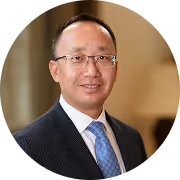
What is Integrative Medicine?
Empowering patients with cancer through integrative medicine: A guide for patients, survivors, and caregivers.
“Dr. Mao, is there anything else I can do?”
“I have so many side effects from chemotherapy, but I don’t want another drug to manage my symptoms.”
“I finished treatment – but why don’t I feel like myself?”
“I want to do everything I can…”
In my over 20 years working with patients with cancer and their loved ones, these are the common questions and statements that I hear daily.
Facing cancer—whether as a patient, survivor, or caregiver—can be overwhelming, filled with complex emotions, challenging decisions, and countless unknowns. While conventional treatments like chemotherapy, radiation, and surgery remain the cornerstone of cancer care, many people are now exploring additional ways to support healing, reduce side effects, and enhance well-being. This is where integrative medicine comes in.
But first, let’s clear up a common misconception: Integrative medicine is not the same as alternative medicine.
Integrative vs. Alternative Medicine: What’s the Difference?
Alternative medicine refers to practices that are used instead of conventional treatments. These may include unproven or unregulated methods that can be risky, especially if they replace therapies with known effectiveness. Choosing alternative treatments in place of chemotherapy or other medically necessary interventions can endanger lives.
Integrative medicine, on the other hand, is evidence-informed and complementary to standard cancer treatments. It brings together the best of both worlds—conventional care and scientifically supported holistic therapies—to treat the whole person: body, mind, and spirit. It does not replace your oncologist's plan; rather, it enhances it.
What Does Integrative Medicine Include?
Integrative cancer care, when guided by professional experts may include:
● Exercise programs tailored to your ability and stage of treatment
● Mind-body therapies like meditation, yoga, and guided imagery to reduce anxiety and improve mood
● Nutrition counseling to help your body stay strong during treatment
● Acupuncture for pain management and relief from nausea or neuropathy
● Massage therapy to support relaxation and improve sleep
● Herbs and supplements to help reduce side effects and improve quality of life
These therapies are backed by growing research and often available through reputable cancer centers.
Why Integrative Medicine Matters in Cancer Care
Cancer affects more than just the physical body—it impacts your emotions, relationships, energy, identity, and even your sense of hope. Integrative medicine addresses these dimensions with compassion and respect, helping you feel more in control and connected during a time that can feel deeply uncertain.
Some documented benefits include:
● Reduced treatment-related side effects like fatigue, nausea, and pain
● Improved mood, sleep, and quality of life
● Greater sense of empowerment and involvement in your care
● Support for caregivers, who often feel forgotten in the process
Becoming an Active Participant in Your Healing
One of the most powerful aspects of integrative care is how it encourages you—the patient or caregiver—to take an active role in the healing journey. Here are a few ways to begin:
- Ask questions. Talk to your oncology team about integrative therapies. Many cancer centers now have integrative medicine resources available for patients.
- Be informed. Seek therapies backed by science. Beware of “miracle cures” or treatments that claim to replace your prescribed plan.
- Listen to your body. Keep a journal of what helps you feel better physically, emotionally, and socially.
- Build your team. A good care team might include an oncologist, oncology nurse, nutritionist, social worker, physical therapist, and integrative health professionals.
- Practice self-care. Even small steps—breathing exercises, short walks, healthy meals—can support healing.
For Caregivers: You Deserve Support, Too
If you're a caregiver, integrative medicine can support you as well. Caregiver fatigue is real. Meditation, massage, support groups, and simply taking time for your own wellness can restore your capacity to care for others.
Final Thoughts: Healing Is More Than Medical Treatment
Integrative medicine doesn't promise to cure cancer—but it can help you heal and feel better. It honors your whole self and helps you find meaning, balance, and strength as you navigate one of life’s toughest challenges.
Remember: this is your journey. You have the right to ask for care that supports all of you—mind, body, and soul.



.jpg)